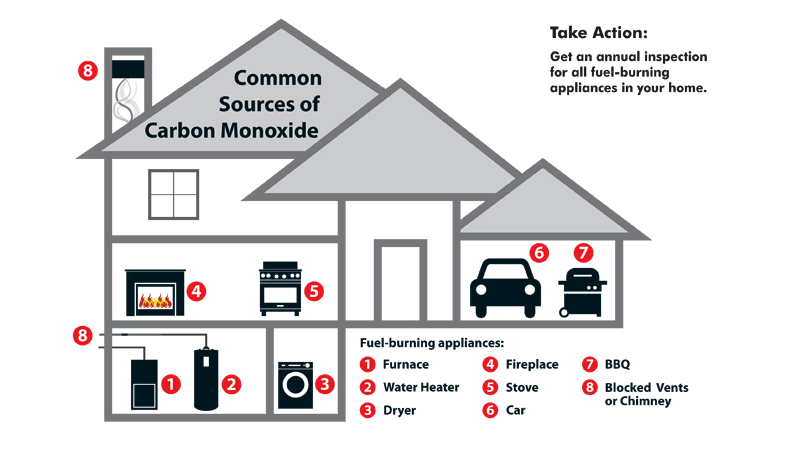Call 1-888-405-7777 - Budget Propane Ontario’s team of experts are available 24 hours a day, 7 days a week to help. If you are in an emergency situation, please call 911.
We value all of our customers, both residential and commercial. That’s why here at Budget Propane we want to make sure you know how to use propane safely, and understand exactly what to do in the event of an emergency.
Propane is one of the safest alternative fuel options on the market. However, while emergencies are rare, you should know exactly how to react so that you can keep your home and your family safe.
▶ GAS LEAKS
What to do if you smell propane or suspect a leak from your tank?

For your safety, propane has an odour added to it so you can detect leaks. The odour added to propane gives off a strong smell of rotten eggs, meaning you should be able to detect a leak fairly fast. Another indication of a gas leak is a hissing noise from a pipe or appliance.
If you detect a leak you should:
Some people may have difficulty smelling propane due to age, a medical condition, the effects of medication, etc. On rare occasions, propane can lose its odour. Consider installing propane detectors for additional security. However, never ignore the smell of propane, even if it is faint or the detector is not sounding an alarm.”
Safety Guidelines Provided by, Propane Safety for Consumers, The Canadian Propane Association. Download a copy today!
▶ CARBON MONOXIDE
The best way for homeowners to reduce the risk of carbon monoxide poisoning is to have a qualified service technician check appliances and venting systems annually, preferably before the heating season begins. Chimneys, flues, and vents should be free of debris (leaves and animal nests) and snow and ice.
Homeowners need to consider installing CO monitors on every level of the house. A gas oven or range-top burners should not be used to provide space heating, portable heaters are never to be used indoors (unless they are designed and approved for indoor use), and the use of a barbecue grill (propane or charcoal) indoors for cooking or heating is never acceptable.
Common sources of carbon monoxide:

▶ FLOODING
If flooding is in the forecast
Floods can make your propane tank more susceptible to leaks or damage, but a few safety precautions will limit those risks:
▶ WINTER SAFETY
.jpg?width=399&name=DriverandTank%20(1).jpg)
Many of our customers enjoy central Ontario year-round, through all kinds of winter weather, permanent residents and weekend cottage enthusiasts.
Here are some important safety tips to help ensure your family’s comfort during the winter season, and to help our drivers service your location in a safe manner.
▶ INSPECTIONS
Ensure propane equipment is inspected regularly
Make sure only qualified service technicians inspect, service and repair your propane appliances.
If you want any further information on propane safety then please do contact Budget Propane Ontario’s team of experts today. We would be more than happy to answer any questions you have.Quick Links
Budget Propane Corporation
Head Office
1011 Beiers Rd.,
Gravenhurst,
Ontario P1P 0C7 Canada